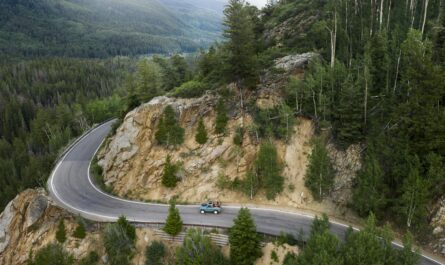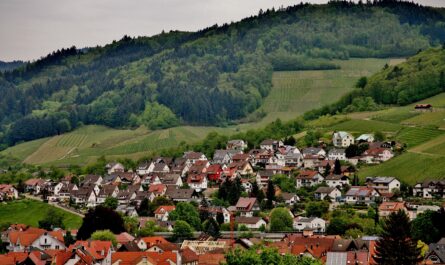Alpbach, a pretty village nestled in the Tyrolean Alps of Austria, has become a symbol of cultural identity and knowledgeable exchange. While much of its international renown is due to its vibrant role as a venue for conferences, including the prestigious European Opportunity Alpbach, the inherent cultural origins of the village are influenced significantly by religion. Religion, particularly the presence of Catholicism, has played a pivotal role in shaping the traditions, values, and cultural landscape of Alpbach. This article will explore the integral role of religion in the cultural development of Alpbach, touching on the historical, architectural, and community-oriented impacts of faith in the village.
Historical Context: Catholicism and Alpbach
Like many regions in Austria, Alpbach has long been intertwined with Catholicism. The village’s history is inextricably linked to the Catholic Church, as it provided not only spiritual guidance but also social and economic structure. The first mention of Alpbach dates back to the early 14th century, a time when the Catholic Church was a central institution in European society. For centuries, the people of Alpbach relied on religious institutions for education, social services, and cultural preservation.
The church in Alpbach, dedicated to St. Oswald, remains a central pillar of the village to this day. This church, which dates back to the 13th century, stands as a testament to the significance of religion in shaping the village’s identity. The altar, the paintings, and the presence of religious symbols throughout the village serve not only as reminders of Alpbach’s historical roots but also as a reflection of the community’s deep connection to Catholic traditions.
Architecture and Religious Symbolism
The architectural landscape of Alpbach is one of the most defining features of the village, with its wooden houses built in the traditional Tyrolean style. The influence of religion is visible in many aspects of the village’s architecture, particularly in the design of churches and chapels. The buildings are characterized by intricate wooden carvings of religious symbols, including depictions of saints, the Virgin Mary, and scenes from the Bible.
One of the most prominent examples of religious influence in the architecture of Alpbach is the St. Oswald Church. This church, which has been renovated and restored several times throughout the centuries, remains an important focal point of the village’s religious and cultural life. The church’s bell tower rises above the village, calling the community to prayer and marking the passage of time.
The Catholic Church’s influence on the design and aesthetics of public spaces in Alpbach is not limited to religious buildings. The village is known for its traditional wooden chalets, many of which feature religious imagery, carvings, and decorations on the exterior. These homes serve as both private residences and expressions of faith, often adorned with religious symbols such as crosses, icons, and inscriptions from scripture.
Religious Festivals and Traditions
Religion plays a prominent role in the everyday life of Alpbach’s residents through a variety of religious festivals and traditions. Catholic holidays and observances, such as Christmas, Easter, and Ascension Day, are celebrated with great reverence in the village. However, these religious festivals also serve as opportunities for community bonding and cultural expression, weaving together faith and social life.
One of the most notable religious events in Alpbach is the annual “Alpbacher Advent,” a Christmas market that blends religious devotion with festive traditions. This market, held in the weeks leading up to Christmas, is a celebration of the Christmas story through local crafts, traditional foods, and religious music. The event provides an opportunity for both locals and visitors to come together in shared spiritual reflection while enjoying the warmth and hospitality of the village.
Moreover, Alpbach hosts numerous religious processions and feasts, where villagers come together to celebrate important events in the Catholic liturgical calendar. These processions often involve the entire village, with participants dressed in traditional Tyrolean costumes, carrying religious icons, and singing hymns. The processions are deeply moving experiences, reinforcing the strong communal bond formed through religious observance.
The Role of Religion in Education and Intellectual Life
Religion also plays a significant role in the educational and intellectual life of Alpbach. The presence of the European Forum Alpbach, an interdisciplinary event that gathers scholars, politicians, and leaders from across Europe, is an example of how religious values and intellectual engagement can coexist in the village. While the forum focuses on a wide range of global issues, its spiritual roots are deeply embedded in the values of dialogue, cooperation, and mutual respect, all of which have strong foundations in Catholic teachings.
Catholic education has been a cornerstone of the village’s growth, with the parish school in Alpbach offering religious instruction alongside general education. In addition to academic knowledge, students are taught the importance of moral values, ethics, and community service, all of which are central to the Catholic faith. This blend of religious teachings with academic pursuits has influenced the development of a strong sense of social responsibility among the residents of Alpbach.
The village’s cultural life is further enriched by the intellectual discussions that arise within the context of religion. Alpbach’s role as a center for conferences and symposia, where issues related to spirituality, ethics, and society are discussed, reflects the village’s ongoing commitment to exploring the relationship between religion and the modern world.
Religion and Community in Alpbach Today
In the contemporary context, religion continues to shape the community in Alpbach, though the role of faith has evolved in response to globalization and modern challenges. While the majority of residents are still Catholic, the village has become increasingly diverse, with individuals from different religious backgrounds now calling Alpbach home. This diversity has enriched the cultural life of the village, while still maintaining a strong emphasis on the values of faith, respect, and community.
The Church remains a central gathering place for the people of Alpbach, providing spiritual support and guidance, but also offering a venue for cultural events, such as concerts, exhibitions, and talks. The Church’s ability to adapt to changing times while remaining a cornerstone of the community underscores the enduring influence of religion in shaping the cultural development of Alpbach.
Religion has played a central role in the cultural development of Alpbach, shaping its history, architecture, festivals, and intellectual life. Catholicism, with its deep-rooted traditions, has provided the spiritual foundation for the community while also influencing its social structures and cultural expressions. As Alpbach continues to grow and evolve, the enduring presence of religion ensures that the village will remain a vibrant center of cultural exchange and community life. Whether through its religious festivals, its architectural beauty, or its commitment to intellectual dialogue, Alpbach stands as a testament to the profound impact of faith on cultural development.





